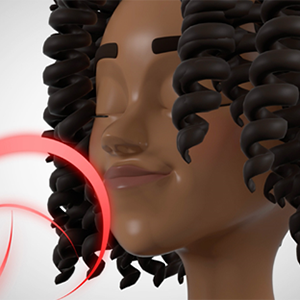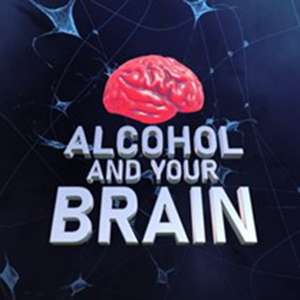
Alcohol and Your Brain: A Virtual Reality Experience
This immersive interactive teaches teens about alcohol’s effects on five areas of the human brain. It simulates a rollercoaster ride weaving and bobbing its way through the prefrontal cortex, nucleus accumbens, amygdala, hippocampus, and cerebellum. Students can control the rail car and pause at stations to learn about these key brain regions affected by alcohol—and how the substance, in turn, affects behavior. Educators and students can access Alcohol and Your Brain in two ways: 1.) a free virtual reality (VR) version for those ages 13+ with access to Quest, Quest 2, or Meta Quest Pro VR headsets, or 2.) a free video or audio-described version.
Grades: Middle and high school
Produced by: National Institutes on Alcohol Abuse and Alcoholism
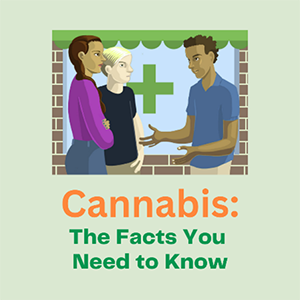
Cannabis: The Facts You Need to Know
This curriculum informs students about cannabis, including an explanation of CBD (cannabidiol) and the short- and long-term health effects of cannabis use, such as memory problems and addiction. Materials include a student article, lesson plan, teacher’s guide, and interactive.
Grades: 6-12
Produced by: National Institute on Drug Abuse and Scholastic, Inc.
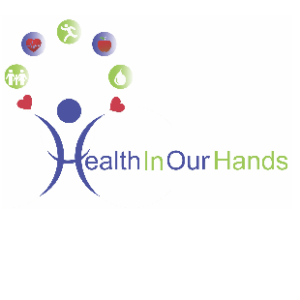
Health In Our Hands Curriculum
Health in Our Hands teaches students to investigate critical community health concerns and use real-world contexts to appreciate the importance of both genetic and environmental factors in their risk for disease. The middle school curriculum consists of two units that focus on gene-environment interactions and natural selection through two subjects: Type 2 diabetes and substance use disorder. The high school curriculum consists of two units that focus on concepts in molecular genetics, genomics, and evolution through exploring variation in monkeyflowers and in skin color, among other topics related to human health.
Grades: Middle and high school
Produced by: Create for STEM Institute at Michigan State University in collaboration with the Health in Our Hands-Flint/Genesee Partnership (SEPA funded)

Is This Legit? Accessing Valid and Reliable Health Information
Health literacy can play a role in how teens interpret messages about alcohol and other substances, and can shape their expectations about what may happen if they consume drugs and alcohol. This new lesson plan helps high school students apply skills in analyzing, evaluating, and comparing different sources of health information to empower them to reject misinformation and make choices to access content that is evidence-based and supports their overall health and well-being.
Grades: High school
Produced by: National Institute on Drug Abuse
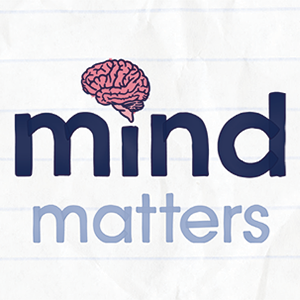
Mind Matters Series
This series includes 9 booklets, each devoted to a specific drug or drug group. Free hard copies of the booklets in English are available for order, and both English and Spanish booklets are provided online as printable PDFs. The accompanying teacher’s guide, which includes background information and activities to enhance student learning, is also online in a printable PDF format.
Grades: 5-8
Produced by: National Institute on Drug Abuse
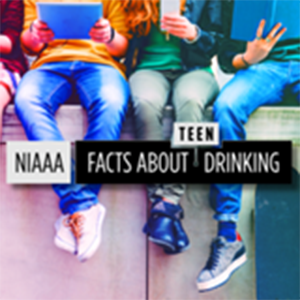
NIAAA Facts About Teen Drinking
This resource is designed for teens and contains research-based information about how alcohol affects their health, including both short-and long-term effects; how to identify signs of a problem with alcohol; and how to get help. Educators and parents can use this website to share important information about alcohol with their students or young family members.
Grades: Middle and high school
Produced by: National Institute on Alcohol Abuse and Alcoholism (NIAAA)

NIAAA for Middle School
This webpage contains resources and activities to help parents, caregivers, and teachers of middle school students introduce and reinforce key messages about peer pressure, resistance skills, and other important topics related to underage drinking.
Grades: 6-8
Produced by: National Institute on Alcohol Abuse and Alcoholism (NIAAA)

NIDA Lesson Plan and Activity Finder Database
Search for free lessons and activities on the science and consequences of drug use. All lessons are based on national science education standards and were developed by scientists from leading universities and the National Institute on Drug Abuse (NIDA).
Grades: Elementary through high school
Produced by: National Institute on Drug Abuse

NIDA National Drug & Alcohol IQ Challenge Kahoot!
Test teens' knowledge about drugs and drug use by taking the NIDA National Drug & Alcohol IQ Challenge Kahoot!
Grades: High school
Produced by: National Institute on Drug Abuse (NIDA)

Nurturing My Mental and Emotional Health
Mental and emotional well-being is critical to overall health. Supporting teens in developing healthy coping skills can set them up for success in dealing with stress and challenging circumstances in the future. This activity helps promote mindfulness and teaches teens how to practice health-enhancing behaviors, which can support better management of stress and reduce the chances of exploring substance use as an alternative. Available in Spanish.
Grades: 6-12
Produced by: National Institute on Drug Abuse

Understanding an Overdose and How to Respond to One
This lesson, which is mapped to national health education standards, focuses on recognizing and responding to a drug overdose. Through the accompanying exercises, students demonstrate their awareness of overdose symptoms and how to respond to them to save a life.
Grades: High school
Produced by: National Institute on Drug Abuse

Understanding Polysubstance Use and How to Make Health-Enhancing Choices
This lesson, which is mapped to national health education standards, helps equip teens with skills to make health-enhancing choices in challenging situations. The lesson and accompanying activity sheets assist them in understanding the risks of polysubstance use, or the mixing of two or more substances, such as alcohol, caffeine, and other drugs.
Grades: High school
Produced by: National Institute on Drug Abuse
